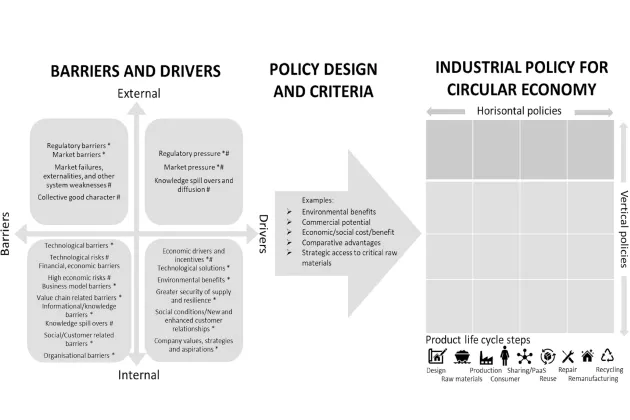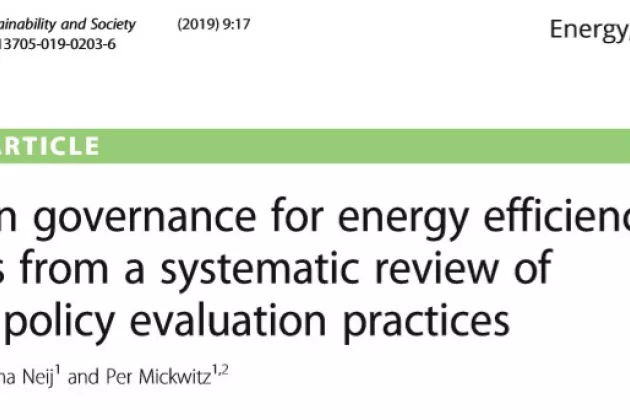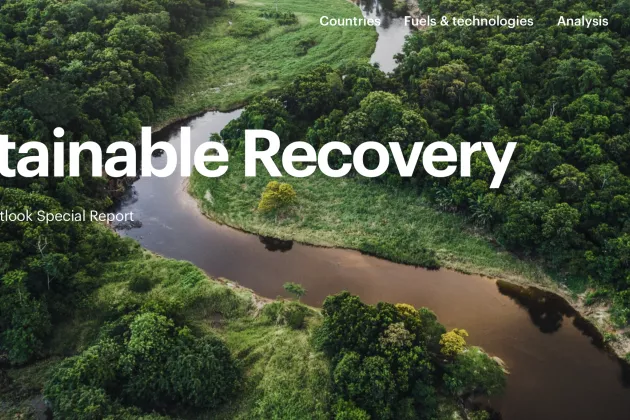Currently, both the US and the EU are pursuing industrial policies to support climate mitigation objectives, and in Sweden, green industrial policy is also having a momentum, with several high-profile projects being pursued. The climate transition will require increased use of material resources, but the current revival for industrial policies does not sufficiently address resource use, despite the unsustainable and accelerating global resource-use, and despite a growing interest in policy development for promoting the Circular Economy and increased resource-efficiency. This policy gap is reflected by a relative lack of research on industrial policy for Circular Economy.
Addressing this knowledge gap, the article is an exploratory contribution to a developing policy landscape, seeking to gain an understanding of the need for an industrial policy for Circular Economy, investigate the particular policy design elements of a future such policy, and provide recommendations for policy makers. The case of Sweden is chosen, as a historical green front-runner, with high environmental awareness among industry and the general public, and with an industrial economic system in transition. Combining key theoretical concepts from research on Circular Economy policy and on green industrial policy, a conceptual framework for analysing potential industrial policies for Circular Economy is developed, providing a base for interviews with 18 senior experts.
The study finds that there is a need for a Swedish industrial policy focusing on the Circular Economy transition, together with larger public investments in CE. It identifies the few existing policy instruments functioning as industrial policy for CE, as well as many additional instruments which could potentially serve this objective. The interviews provide insights into the specific policy needs, the factors determining policy-design, and the choice of industry sectors and value chains for new policies to target.
A relevant policy mix includes policy instruments such as green tax shifting, differentiated Value Added Tax, Circular Public Procurement, funding schemes, but also an improved institutional framework. Policy criteria should be based primarily on environmental impact, but also on potential competitive advantages of Swedish industry, and close alignment with European Union policies. The study concludes that a policy mix combining new and expanded industrial policy instruments, focusing on correcting market failures, market creation, and capacity-building, can support a circular industrial transition. Finally, the study finds that the current upsurge in interest for Circular Economy and for green industrial policy can be leveraged to realise such a policy, but that complexities regarding i.e. CE definitions, implementation, and ideological divergencies, policy needs firm anchoring in analysis of environmental impact, clear governmental vision and well-defined targets.
The article is authored by Marianne Ekdahl, Leonidas Milios and Carl Dalhammar, and the research has been supported by the Mistra REES research programme. It is published as a part of the Sustainable Production and Consumption special issue “Circular Economy as a Driver for Achieving Sustainable Production and Consumption (II)”.
Read the article here: Industrial policy for a circular industrial transition in Sweden: An exploratory analysis





